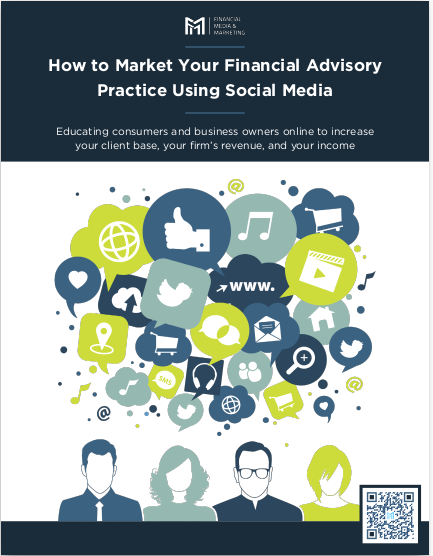Key Takeaways
-
Building trust and credibility with your clients is crucial for long-term success in the financial advising industry.
-
A strong professional reputation can differentiate you from competitors and help you retain and attract clients in today’s competitive market.
Why Trust and Credibility Are Your Greatest Professional Assets
In today’s rapidly changing market, clients are looking for more than just someone to manage their money. They want a financial advisor they can trust, someone who is credible, reliable, and has their best interests at heart. While experience and knowledge are essential, trust and credibility are what truly set you apart and allow you to thrive in the long run.
Your clients rely on you to help them make decisions that directly impact their financial security. If they don’t trust you, they won’t follow your advice, and they certainly won’t recommend you to others. By consistently building your credibility, you earn not only their trust but also their loyalty—and that is priceless.
Let’s explore how you can strengthen these professional assets to ensure you remain indispensable to your clients.
Lead With Transparency and Honesty
Transparency is the foundation of trust. Clients appreciate financial advisors who are honest about fees, services, risks, and potential returns. The days of promising unrealistic results or avoiding difficult conversations are long gone. In fact, being open about what clients can expect makes you more relatable and trustworthy.
Be Clear About Fees and Services
No one likes hidden costs. Be upfront about your fees and the value you bring. Clearly explain how your services align with your clients’ goals, and highlight the tangible benefits they’ll receive. This will prevent misunderstandings and reinforce your transparency.
Manage Expectations
Financial markets are unpredictable, and clients know that. What they don’t like, however, are surprises. Always set realistic expectations about what you can achieve, and ensure your clients understand the risks involved. They’ll appreciate your honesty, even if the news isn’t always positive.
Develop Strong Communication Skills
Your ability to communicate clearly and consistently plays a huge role in how your clients perceive you. Good communication goes beyond emails and meetings; it’s about building relationships through regular and meaningful interactions.
Listen to Your Clients
One of the most effective ways to build trust is to truly listen to your clients. Ask open-ended questions about their goals, concerns, and aspirations. Show that you understand their unique situation and are invested in their success.
Simplify Complex Topics
Financial jargon can alienate clients and create unnecessary confusion. Break down complex topics into simple, easy-to-understand language. Educating your clients builds confidence in your abilities and demonstrates that you’re not trying to overwhelm or mislead them.
Stay in Regular Contact
Don’t wait for your clients to reach out to you. Proactively check in with updates, market insights, or to simply see how they’re doing. Regular communication shows that you’re engaged and available, which strengthens trust over time.
Demonstrate Consistency and Reliability
Consistency is one of the most overlooked components of credibility. Clients want to work with someone they can rely on—someone who does what they say they will, time and time again.
Deliver on Your Promises
If you commit to sending a report, delivering a follow-up, or meeting a deadline, make sure you follow through. Reliability builds confidence, and clients will feel secure knowing they can count on you.
Maintain a Consistent Presence
Whether it’s through regular meetings, newsletters, or social media updates, a consistent presence reminds clients that you’re always there for them. Over time, this builds credibility and reinforces your value.
Showcase Your Expertise
Your clients want to know they’re in good hands. Position yourself as an expert in your field by continuously growing your knowledge and sharing valuable insights with your clients.
Keep Learning and Evolving
The financial landscape is always changing, and staying ahead of the curve is essential. Invest in continuing education, attend industry events, and keep up with emerging trends. Clients trust advisors who are knowledgeable and up-to-date.
Share Insights and Advice
Demonstrating expertise doesn’t mean overwhelming clients with information. Instead, share relevant insights that are tailored to their needs. This could be through blog posts, newsletters, webinars, or quick market updates. Educating your clients empowers them and reinforces your credibility.
Build Strong Personal Connections
Financial advising is as much about relationships as it is about numbers. Clients want to feel like they’re working with a person, not a business.
Show Empathy
Financial discussions can be stressful for clients. Whether they’re saving for retirement, planning for college, or navigating a difficult financial situation, show empathy and compassion. Let them know you understand their concerns and are there to help them every step of the way.
Be Approachable
A warm, approachable demeanor can go a long way in building trust. Be someone your clients feel comfortable talking to, and create an environment where they can openly share their thoughts and concerns.
Go Beyond the Numbers
Remember, your clients are people, not just portfolios. Take an interest in their lives beyond their financial goals. Ask about their families, hobbies, and dreams. Building a personal connection strengthens trust and loyalty.
Utilize Client Testimonials and Referrals
Your current clients can be one of your greatest assets when it comes to building credibility. Positive testimonials and referrals act as social proof that you deliver results and provide value.
Encourage Client Feedback
Ask satisfied clients to provide testimonials about their experience working with you. Highlight these testimonials on your website, social media, or in your marketing materials. New leads are more likely to trust you when they see that others have had success.
Build a Referral Network
When clients trust you, they’re more likely to refer you to their friends, family, or colleagues. Don’t be afraid to ask for referrals—just make sure you’ve earned their trust first.
Be Proactive and Forward-Thinking
Clients want to work with someone who is not only addressing their current needs but also planning for their future. Demonstrate your value by being proactive and anticipating their evolving financial needs.
Identify Potential Challenges
Stay ahead of market changes and economic trends that may impact your clients’ financial plans. Proactively offer solutions or adjustments to help them navigate these challenges with confidence.
Offer Long-Term Value
Show clients that you’re committed to helping them achieve long-term financial success. Whether it’s retirement planning, tax strategies, or wealth management, provide guidance that goes beyond short-term gains.
Stay Authentic and True to Your Values
Clients can sense when someone isn’t being genuine. Authenticity goes a long way in building lasting trust and credibility.
Define Your Values
Know what you stand for and communicate those values to your clients. Whether it’s integrity, transparency, or a client-first approach, your values should guide every decision you make.
Avoid Hard Selling
Pushy sales tactics can quickly erode trust. Instead, focus on educating your clients and offering solutions that align with their needs. When you prioritize their goals over your own, they’ll trust you even more.
The Bottom Line: Trust and Credibility Set You Apart
In today’s competitive financial advising industry, trust and credibility are your most valuable professional assets. By being transparent, reliable, and authentic, you can foster strong relationships that stand the test of time. Remember, clients don’t just want an advisor—they want a trusted partner who understands their needs and is committed to helping them achieve their financial goals. By focusing on trust and credibility, you can thrive in any market and build a reputation that keeps clients coming back.










